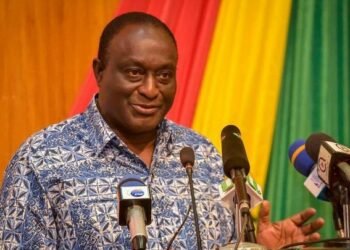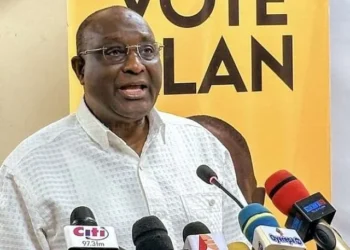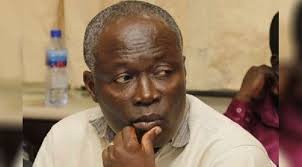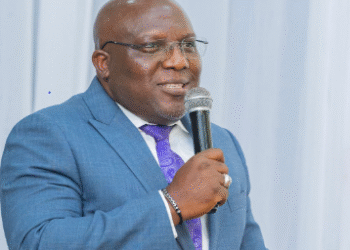President John Mahama’s approval ratings have taken a notable hit, according to new data from Global InfoAnalytics, sparking conversations about growing public dissatisfaction.
The latest polling shows a six percent drop in Mahama’s numbers, a decline that Mussa Dankwah, Executive Director of Global InfoAnalytics, described as “quite huge in polling numbers when it comes to polling.”
According to Dankwah, while fluctuations in approval ratings are normal, such a sharp drop signals that a significant issue may be driving public sentiment.
“Normally, polls don’t drop that kind of massively. And also, if you look at the direction of the country, about 5% down from the highest of, I think, 71% or so, is quite down. And that’s also sharp.”
Mussa Dankwah

The data reveals troubling indicators for the NDC-led government, particularly in areas where public trust is essential.
A critical factor, Dankwah noted, is the perception that the government is failing in its fight against corruption.
“If you look at those who say that the government is doing well in fighting corruption, that is down as well,” he said. This, he believes, reflects growing public agitation over recent developments between July and now.
Corruption Perception, Plea Bargain Mar Approval Rating
While the overall standard of living has seen only a marginal decline, dropping about two percent compared to last year, Dankwah stressed that this alone does not account for the sharp dip in Mahama’s approval ratings.
Instead, the decline appears tied to citizens’ perceptions of corruption and the government’s response to it.
The controversy surrounding plea bargains for individuals involved in corruption scandals has further intensified public frustration.
“People are trying to get behind the scenes, which people are really angry about. They don’t expect people who steal money to be able to bargain and get what’s called free or get a lesser sentence. And I think that’s something they have to fight and address with the public.”
Mussa Dankwah
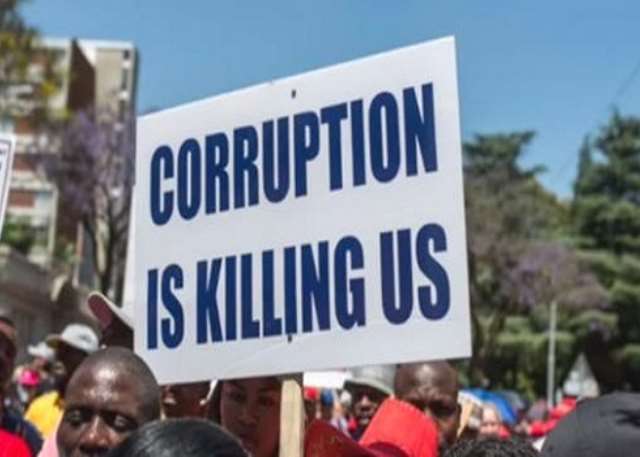
He emphasized that public opinion on the matter is clear: “The public doesn’t have an appetite for a plea bargain. And the government must be listening and listening very carefully. That is on our side.”
Adding to the government’s woes is the growing discourse around galamsey (illegal mining), which has sparked concerns about the direction of the country.
According to Dankwah, rising frustration over this issue is influencing how citizens perceive governance and the future of the nation.
Despite the concerning numbers, Dankwah cautioned against interpreting the decline as a long-term trend, at least for now.
He stressed the importance of examining multiple data points before drawing definitive conclusions.
“A first drop in a number is not a trend. A second drop is not a trend. But if you compare it for a third time, then you can say this is clearly a trend that is manifesting.”
Mussa Dankwah
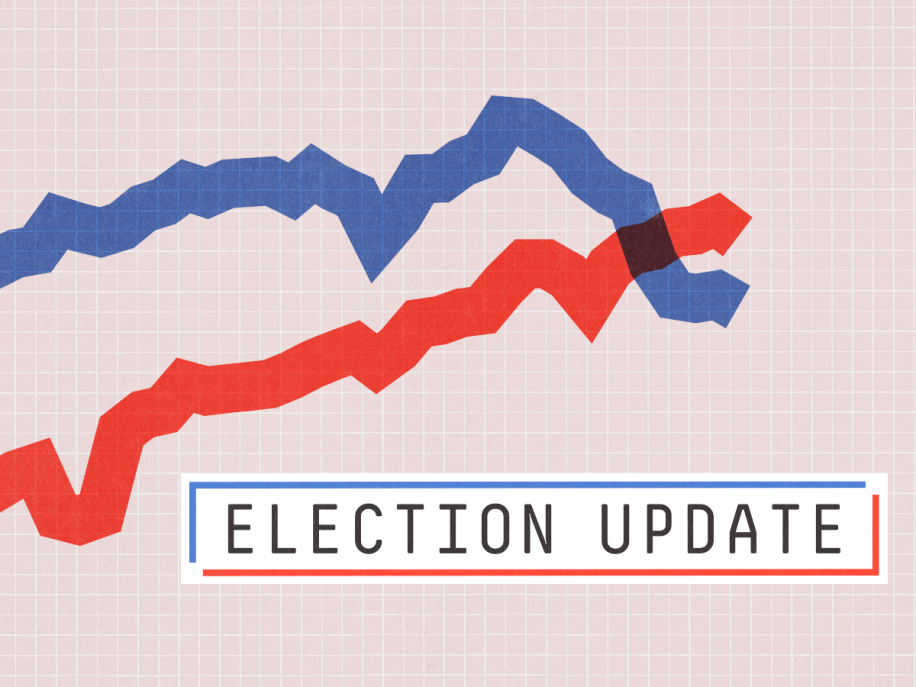
The current figures, he noted, should be seen as a potential “blip.” However, he warned that if subsequent polls show continued decline, it would signal a deeper problem for the NDC administration.
“If it doesn’t and drops again, then it should be a very big concern for them. And if it drops again, then that means that, look, we are probably in very muddy waters.”
Mussa Dankwah
Comparison with Nana Addo’s Final Days
Dankwah also provided historical context by comparing Mahama’s current approval rating with former President Nana Akufo-Addo’s ratings toward the end of his tenure.
“If you compare where Nana Addo was in 2024, in October, the last tracking poll that we did under Nana Addo, Nana Addo was on a 36% approval rating. Very, very low. And the first tracking for Mahama was 66%.”
Mussa Dankwah
Mahama’s initial numbers reflected a strong start, showing a significant contrast with Akufo-Addo’s declining approval.
Currently, Mahama’s rating stands at 67%, which, despite the drop, remains higher than his first tracking poll.
Dankwah pointed out that while the decline is noteworthy, Mahama’s position is far from disastrous. “Even though it has declined, it’s no worse performance for him,” he said.
This suggests that the president still enjoys considerable support, though challenges remain.

The sharp decline in Mahama’s approval ratings underscores the growing demand for decisive action against corruption and illegal mining.
Analysts suggest that if the NDC government fails to address these issues, public dissatisfaction could deepen, posing significant political risks ahead of the next election cycle.
Dankwah’s findings indicate that citizens are closely watching how the administration handles corruption scandals and controversial policies like plea bargaining.
As he noted, the government’s willingness to listen to public concerns will be critical in determining whether Mahama’s ratings stabilize or continue to fall.
For now, the six percent drop serves as a warning sign rather than a definitive verdict.
However, with public frustration on the rise, the coming months will be crucial in shaping both the government’s reputation and the political landscape leading up to 2026.
READ ALSO: Rihanna, ASAP Rocky Welcome Third Child




